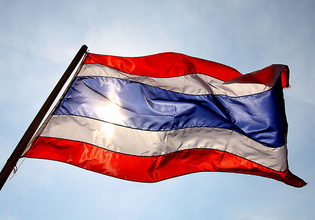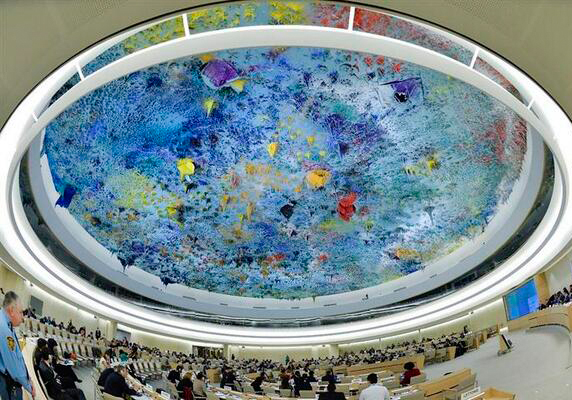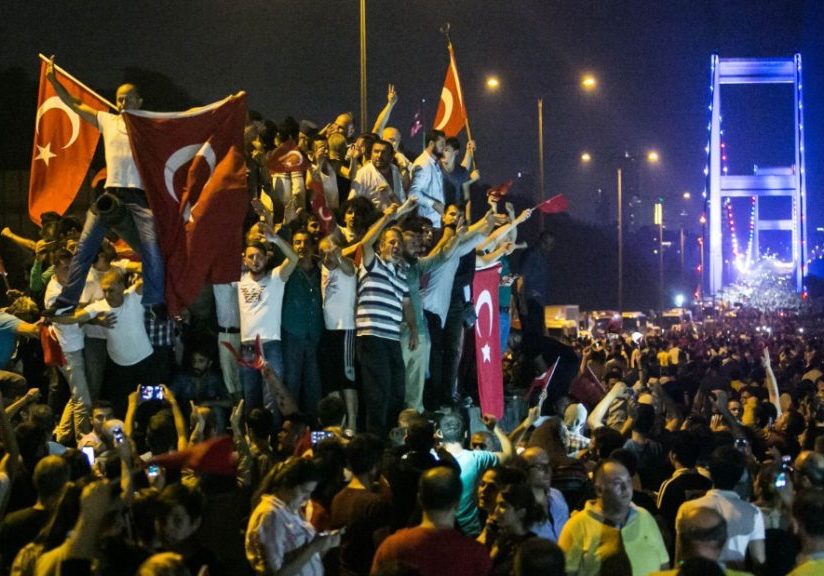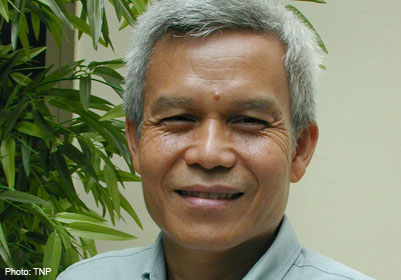
Feb 23, 2017 | Advocacy, Open letters
The ICJ joins South Sudanese, regional and other international non-governmental organizations in a joint letter urging the Human Rights Council to renew and strengthen the mandate and capacity of the UN Commission on Human Rights in South Sudan.
Action is needed to address the continued lack of accountability for severe, widespread and on-going crimes under international law and human rights violations and abuses, many of which amount to war crimes and crimes against humanity, during the upcoming 34th session of the UN Human Rights Council (UN HRC).
South Sudan-letter HRC34-Advocacy-Open letters-2017-ENG (full text in PDF)

Feb 13, 2017 | Advocacy, Non-legal submissions
The ICJ and Thai Lawyers for Human Rights (TLHR) have made a submission to the UN Human Rights Committee in view of its forthcoming review of the implementation of the International Covenant on Civil and Political Rights by Thailand.
In their submission, the ICJ and TLHR have brought to the Committee’s attention their concerns in relation to the following issues:
- Constitutional and legal framework within which the Covenant is implemented;
- States of emergency;
- Right to life and prohibition of torture and cruel, inhuman or degrading treatment or punishment;
- Right to liberty and security of the person, treatment of persons deprived of their liberty, right to a fair trial and independence of judiciary; and
- Freedoms of expression and association and right to peaceful assembly.
Thailand-ICCPR Submission ICJ-TLHR-Advocacy-Non legal submissions-2017-ENG (Full text in PDF)
Thailand-ICCPR Submission ICJ-TLHR-Advocacy-Non legal submissions-2017-THA (Thai version, in PDF)

Feb 9, 2017 | Advocacy, News
The ICJ today welcomed the indefinite suspension of the hearings on the death penalty bills by the Philippine Senate’s Committee on Justice and Human Rights.
The Committee’s Chairman, Senator Richard Gordon, indicated the suspension was needed until the Department of Justice is able to submit its opinion on the Philippines’ obligations under the Second Optional Protocol to the International Covenant on Civil and Political Rights (ICCPR).
That instrument requires the Philippines to maintain its abolition.
“Abolitionist States may not return to the use of the death penalty generally under the ICCPR, and States that become party to the Second Optional Protocol assume very specific obligations to that effect,” said Emerlynne Gil, ICJ’s Senior International Legal Adviser for Southeast Asia. “There really is no inconsistency between the Second Optional Protocol and the Philippine Constitution.”
“As a general rule, the Philippine Constitution prohibits the death penalty except for compelling reasons involving heinous crimes. But in no way does it mandate that the death penalty be put into effect,” she added.
By ratifying the Second Optional Protocol, the Philippines has voluntarily chosen to be bound by an international obligation not to impose the death penalty – which it might otherwise have had the option to do under the Constitution.
As the ICJ explains in a memorandum on this issue, this is the very essence of treaty making.
“To announce long after ratification that a treaty is inconsistent with the Constitution and so not to be treated as binding, would call into question virtually every treaty to which Philippines is a party,” Gil said.
“This would contradict the most basic foundations of the international legal system and would lead other countries to view the Philippines as virtually incapable of making a reliable international legal agreement,” she added.
The ICJ emphasized that if the Philippines brings back the death penalty into its domestic laws, it would also be in violation of its obligations under the ICCPR, which effectively prohibits States from bringing back the death penalty once it has been abolished in domestic laws.
The Philippines cannot withdraw from Second Optional Protocol, which has no denunciation or withdrawal clause, the ICJ says.
The UN Human Rights Committee has explained that a denunciation clause was deliberately omitted because once the people are accorded the protection of the rights under the Second Optional Protocol, they shall not be deprived of such protection.
Background
On 7 February 2017, the Senate Committee on Justice and Human Rights held its first hearing on the proposed measure reintroducing the death penalty for illegal drugs and other crimes.
A similar bill to restore the death penalty is also currently being debated in plenary at the House of Representatives.
At the Senate hearing, senators opposing the proposed measure recalled that the Philippines is a State Party to the Second Optional Protocol, and thus, it is obliged not to execute any person within its jurisdiction.
Senator Richard Gordon, who chairs the Committee, thereafter, called for the indefinite suspension of the hearings on this matter until there could be clarity on the ramifications on the Philippines if it breaches its obligations under the Second Optional Protocol.
Contact
Emerlynne Gil, ICJ’s Senior International Legal Adviser, t +66 840923575 ; e: emerlynne.gil(a)icj.org
Philippines-Memo OP2 and Const-Advocacy-2017-ENG (Memo in English, PDF)

Dec 14, 2016 | Advocacy, Non-legal submissions
The ICJ today joined other NGOs in calling on the UN Human Rights Council to take bold and decisive action to address the grave situation in South Sudan.
The statement, made during a Special Session of the Human Rights Council, convened on an urgent basis to discuss the situation in South Sudan, underscores the negative consequences of continuing impunity and lack of accountability, and calls among other things for the Human Rights Council resolution to be adopted that would:
· Support a strengthened mandate and capacity of the UN Commission on Human Rights in South Sudan to investigate serious violations of human rights and humanitarian law and identify alleged perpetrators, with a special focus on sexual and gender based crimes.
· Request that the report of the UN Commission is transmitted to the UN Security Council for consideration and further action.
· Urge that all states encourage further concrete action to prevent a further escalation of violence and conflict, and to deter and address these on-going violations of international human rights and humanitarian law at the UN Security Council, including sanctions and the imposition of a comprehensive arms embargo.
· Urge the African Union to take immediate steps to establish the hybrid court for South Sudan provided for in the 2015 peace agreement.
The Human Rights Council ultimately adopted, without a vote (i.e. by consensus), a resolution that includes many of these elements (final text not yet available).
The full statement can be downloaded in PDF format here: un-jointstatementsouthsudan-advocacy-2016
It was delivered by Human Rights Watch on behalf of:
- Amnesty International
- Association for Human Rights in Ethiopia
- Defend Defenders
- Human Rights Watch
- Humanity United
- International Commission of Jurists
- International Refugee Rights Initiative
- International Service for Human Rights
- National Coalition of Human Rights Defenders Uganda
- Pan-African Human Rights Defenders Network
- South Sudan Human Rights Defenders Network

Dec 6, 2016 | Advocacy, News, Non-legal submissions
Nearly five months after the failed coup attempt in Turkey, the country remains locked in an acute rule of law crisis. The government must take urgent steps to restore the rule of law, the ICJ said today.
Mass arrests, many of them arbitrary, and credible allegations of the torture and other ill-treatment of detainees, mean that access to legal advice, to a fair trial and to effective judicial remedies are crucial. However, the unprecedented summary and arbitrary purge of the judiciary following the coup, and arrests of judges, prosecutors and lawyers, have significantly weakened the justice system and its capacity to protect against and effectively remedy violations of human rights. The vulnerability of detainees to violations of their human rights has been compounded by unwarranted restrictions on access to lawyers and extended periods of pre-trial detention.
State of Emergency
The ICJ is concerned that the State of Emergency, which involves derogations from Turkey’s international human rights law obligations, has been renewed for a second period of 90 days, until mid-January. Sweeping emergency decrees continue to erode human rights, including rights of fair trial, the right to liberty, and freedoms of expression and association.
The ICJ recalls that in times of crisis, any measures derogating from human rights must be strictly necessary to meet a current threat to the life of the nation. This necessity must be continually re-assessed so that the derogating measures apply for the shortest time possible. Certain human rights, including the right to life, the prohibition of torture or ill-treatment, and the essential elements of arbitrary deprivation of liberty and to a fair trial and the right to an effective remedy can never be restricted even in a state of emergency. The ICJ is concerned that Turkey’s notifications of derogation purport to derogate in general terms from a number of these rights.
Measures taken under the State of Emergency should be rigorously and urgently reviewed to ascertain whether they are permissible under international law and whether they remain necessary and proportionate to any current threat to the life of the nation. Moreover, it must be ensured that non-derogable rights, including the prohibition on torture and other ill-treatment, and the right to a fair trial, are not limited by emergency measures. The ICJ urges the Turkish authorities to lift the State of Emergency and the derogations from its international human rights law obligations at the earliest opportunity.
Independence of the judiciary
The ICJ reiterates its grave concern at mass dismissals of judges and prosecutors, which have a devastating effect on the independence of the judiciary. More than 3,000 judges and prosecutors – approximately one fifth of the judiciary – have been arbitrarily dismissed under emergency decrees, without procedural safeguards and without the right to reasoned decisions.
Judges and prosecutors have been detained in very large numbers. In total, more than 2,000 have been detained, including two judges of the Constitutional Court, 109 members of the Court of Cassation, 41 Members of the Council of State and five members of the High Council for Judges and Prosecutors (HSYK).
Restructuring of the Court of Cassation and the Council of State, under legislation adopted in July, has required the reappointment of all judges of these courts. New judges have been appointed rapidly, through procedures that lack transparency, and in the context of strong executive influence over the appointment process in the HSYK.
The ICJ is also gravely concerned that the independent association of judges, YARSAV, has been shut down, and its President, Murat Arslan, has been arrested.
These measures have eroded the separation of powers in Turkey and have seriously undermined the independence of the judiciary at every level, compromising the courts’ ability to provide fair trials or an effective remedy for violations of human rights. The impact of this situation on the protection of human rights goes beyond what can be justified under the state of emergency. To meet its international human rights obligations, the Turkish government must as a matter of urgency take steps to restore the independence of the judges and of the governing bodies of the judiciary. Procedural safeguards that protect against arbitrariness in criminal, civil and administrative procedures, including in regard to the dismissal of judges, must be reinstated.
Independence of lawyers and access to legal advice
The ICJ is similarly concerned at measures that undermine the independence of the legal profession and the capacity of lawyers to protect human rights. More than 573 lawyers are reported to have been detained in connection with the failed coup since July, and more than 200 have been arrested, and their assets frozen.
Amongst those reported to be arrested are four Presidents of regional bar associations: Orhan Öngöz, President of the Trabzon Bar; Mehmet Cemal Acar, President of the Siirt Bar; İsmail Taştan, President of the Gumushane – Bayburt Regional Bar and Fevzi Kayacan, President of the Konya Bar. The ICJ considers that many of these detentions and arrests are likely to be arbitrary.
These developments have very serious consequences, not only for the rights of lawyers themselves, but also for the right to a fair trial of their clients and the effectiveness of judicial remedies for violations of human rights. They raise concerns that lawyers are being identified with their clients or their clients’ causes, contrary to the Principle 18 of the UN Basic Principles on the Role of Lawyers. The ICJ recalls that under the UN Basic Principles, governments must ensure that lawyers are able to perform all of their professional functions without intimidation, hindrance, harassment or improper interference.
Furthermore, the ICJ is concerned that hundreds of NGOs have been closed under emergency decrees, including a number of lawyers’ associations. Such closures have serious implications for rights of freedom of association and expression, and for the rule of law.
The ICJ calls on the Turkish government to take urgent steps to guarantee the independence of the legal profession, protect lawyers from arbitrary detention or arrest and provide procedural safeguards to ensure the right to fair trial of lawyers under criminal investigation.
Contact:
Roisin Pillay, ICJ Europe Director, at roisin.pillay(a)icj.org or +32 2 734 84 46
Massimo Frigo, ICJ Europe Legal Adviser, at massimo.frigo(a)icj.org or +41 22 979 38 05










